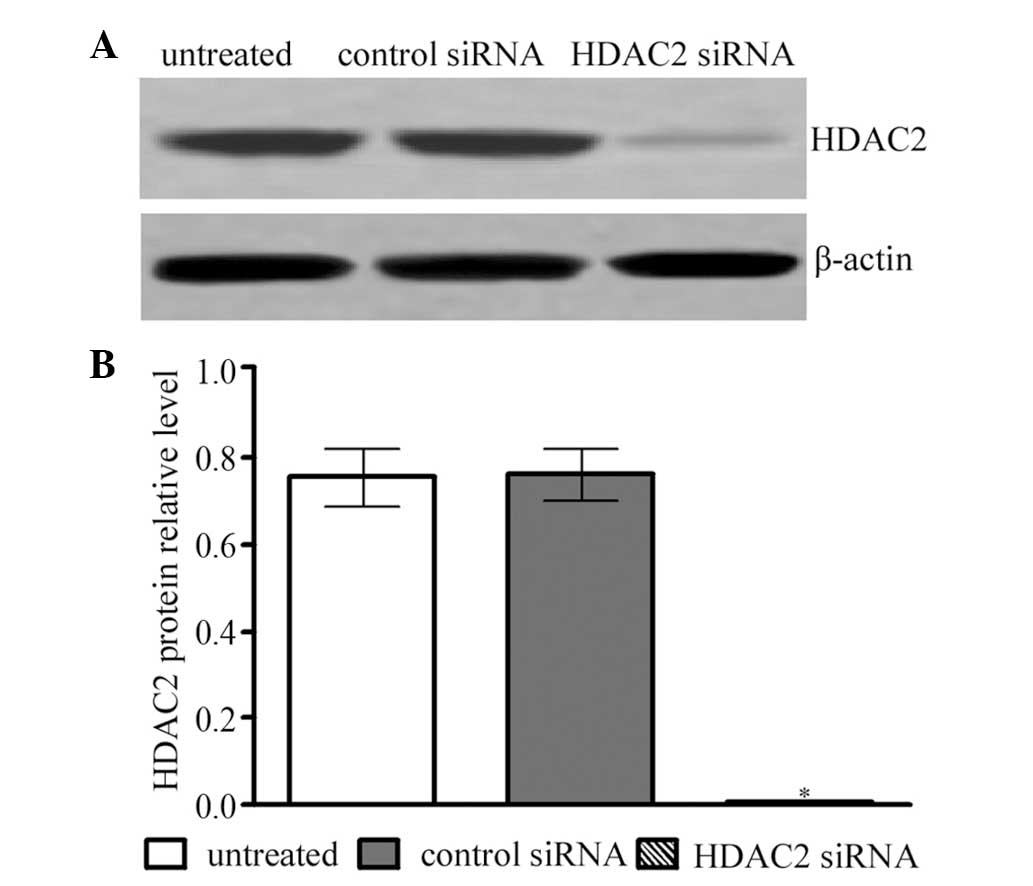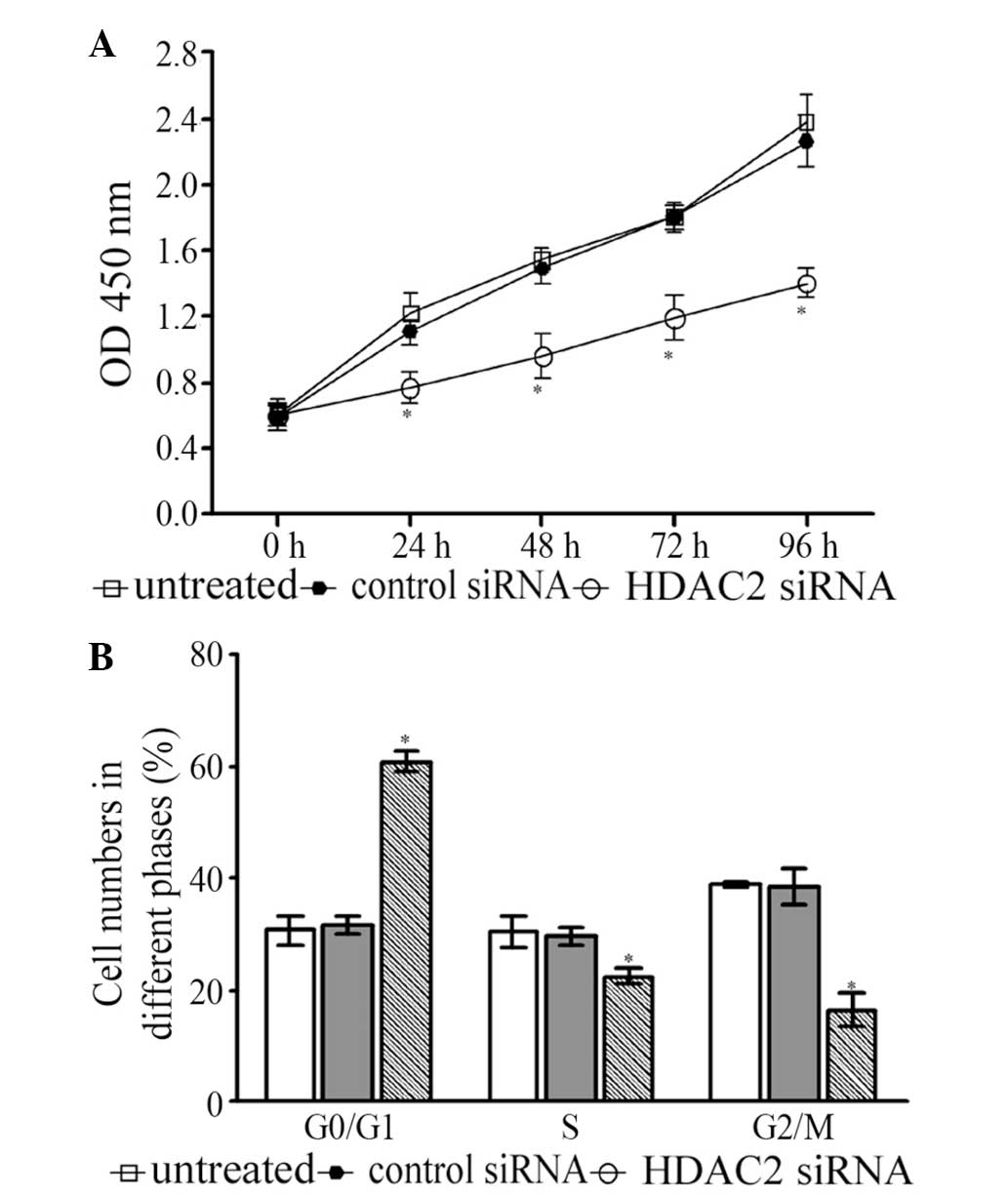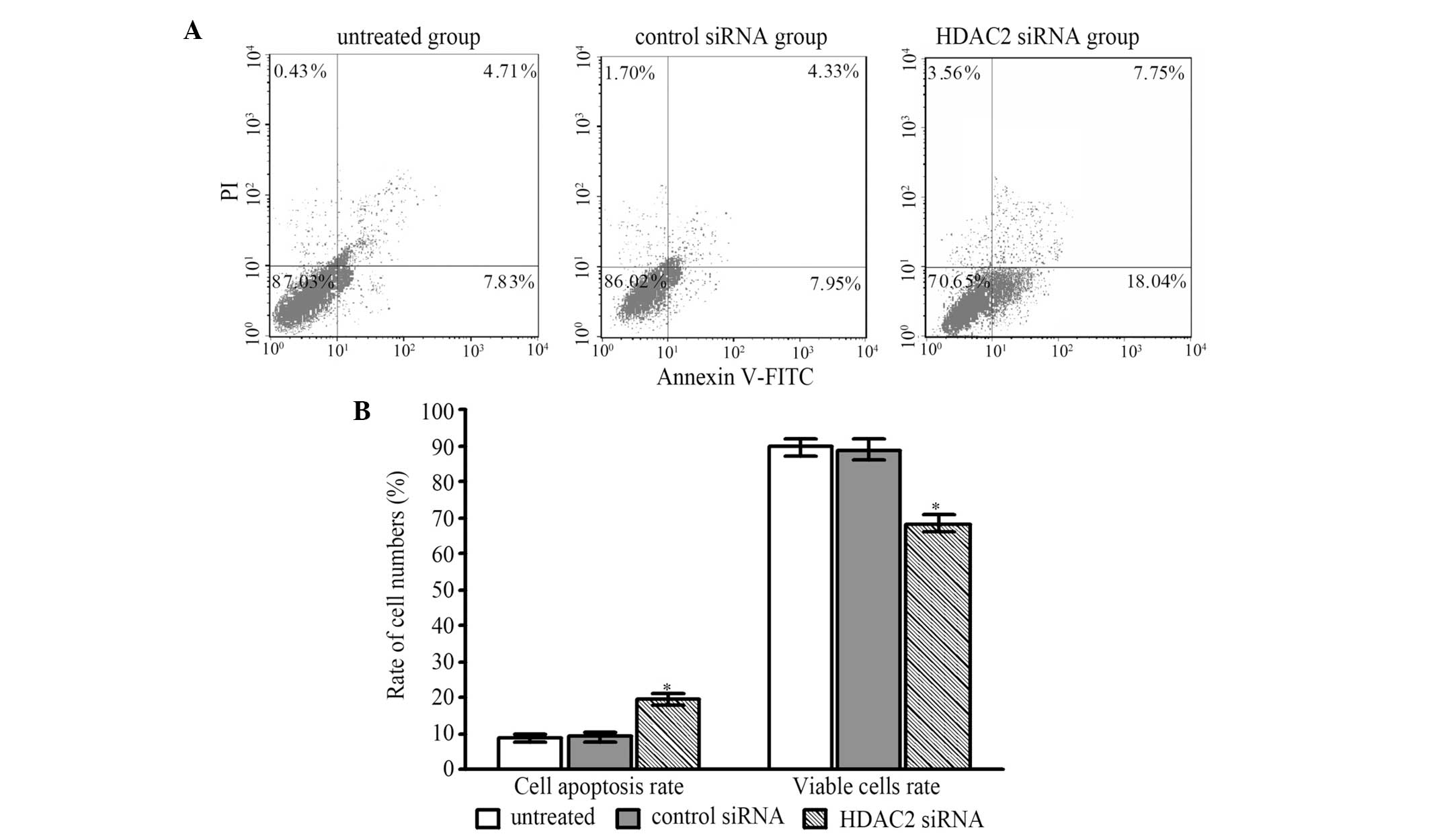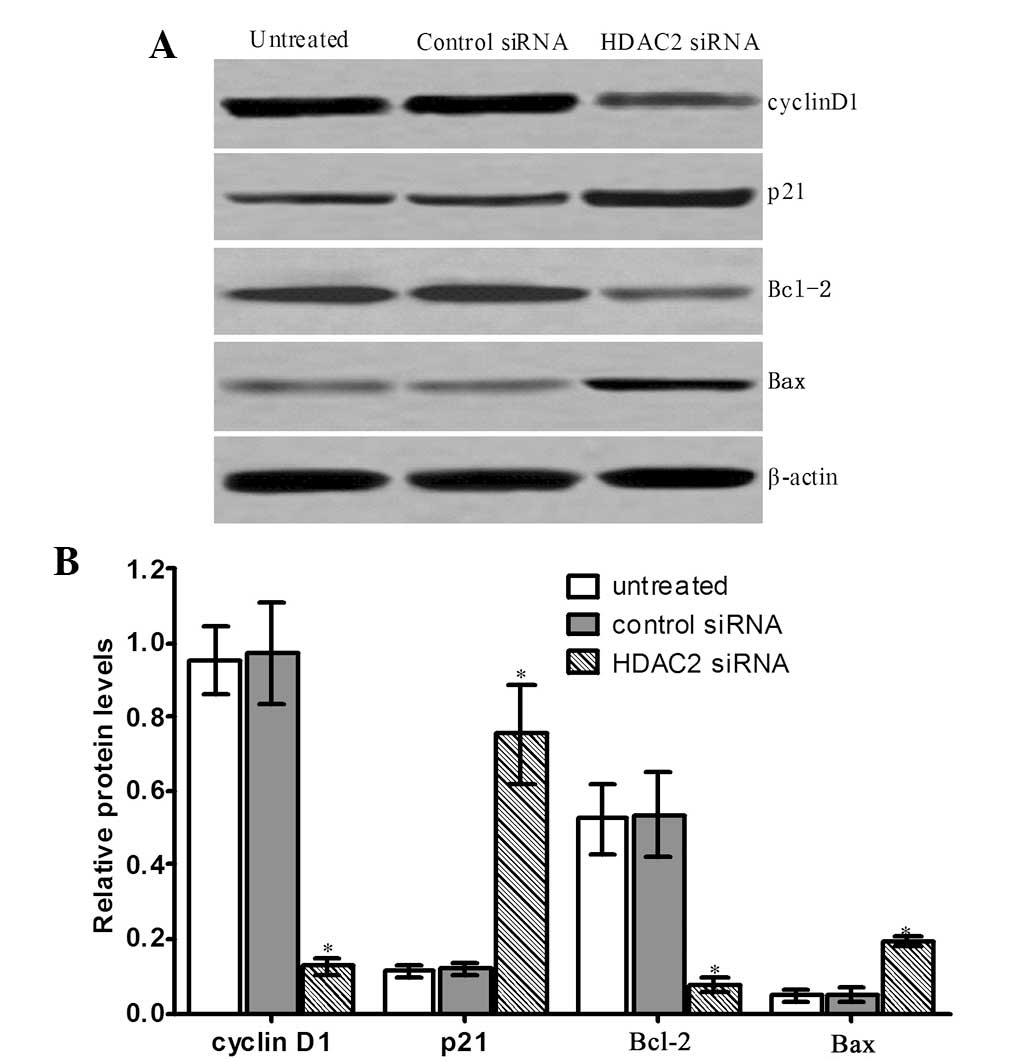|
1
|
Parkin DM, Bray F, Ferlay J and Pisani P:
Global cancer statistics, 2002. CA Cancer J Clin. 55:74–108. 2005.
View Article : Google Scholar : PubMed/NCBI
|
|
2
|
Lam AK: Molecular biology of esophageal
squamous cell carcinoma. Crit Rev Oncol Hematol. 33:71–90. 2000.
View Article : Google Scholar : PubMed/NCBI
|
|
3
|
Parkin DM, Bray FI and Devesa SS: Cancer
burden in the year 2000. The global picture. Eur J Cancer.
37:(Suppl 8). S4–S66. 2001. View Article : Google Scholar : PubMed/NCBI
|
|
4
|
Ekman S, Dreilich M, Lennartsson J,
Wallner B, Brattström D, Sundbom M and Bergqvist M: Esophageal
cancer: Current and emerging therapy modalities. Expert Rev
Anticancer Ther. 8:1433–1448. 2008. View Article : Google Scholar : PubMed/NCBI
|
|
5
|
Ke L: Mortality and incidence trends from
esophagus cancer in selected geographic areas of China circa
1970-90. Int J Cancer. 102:271–274. 2002. View Article : Google Scholar : PubMed/NCBI
|
|
6
|
Edwards BK, Brown ML, Wingo PA, Howe HL,
Ward E, Ries LA, Schrag D, Jamison PM, Jemal A, Wu XC, et al:
Annual report to the nation on the status of cancer, 1975–2002,
featuring population-based trends in cancer treatment. J Natl
Cancer Inst. 97:1407–1427. 2005. View Article : Google Scholar : PubMed/NCBI
|
|
7
|
Brandl A, Heinzel T and Krämer OH: Histone
deacetylases: Salesmen and customers in the post-translational
modification market. Biol Cell. 101:193–205. 2009. View Article : Google Scholar : PubMed/NCBI
|
|
8
|
Krämer OH: HDAC2: A critical factor in
health and disease. Trends Pharmacol Sci. 30:647–655. 2009.
View Article : Google Scholar : PubMed/NCBI
|
|
9
|
Wagner T, Brand P, Heinzel T and Krämer
OH: Histone deacetylase 2 controls p53 and is a critical factor in
tumorigenesis. Biochim Biophys Acta. 1846:524–538. 2014.PubMed/NCBI
|
|
10
|
Bieliauskas AV and Pflum MK:
Isoform-selective histone deacetylase inhibitors. Chem Soc Rev.
37:1402–1413. 2008. View
Article : Google Scholar : PubMed/NCBI
|
|
11
|
Weichert W: HDAC expression and clinical
prognosis in human malignancies. Cancer Lett. 280:168–176. 2009.
View Article : Google Scholar : PubMed/NCBI
|
|
12
|
Chang HH, Chiang CP, Hung HC, Lin CY, Deng
YT and Kuo MY: Histone deacetylase 2 expression predicts poorer
prognosis in oral cancer patients. Oral Oncol. 45:610–614. 2009.
View Article : Google Scholar : PubMed/NCBI
|
|
13
|
Zhu P, Martin E, Mengwasser J, Schlag P,
Janssen KP and Göttlicher M: Induction of HDAC2 expression upon
loss of APC in colorectal tumorigenesis. Cancer Cell. 5:455–463.
2004. View Article : Google Scholar : PubMed/NCBI
|
|
14
|
Huang BH, Laban M, Leung CH, Lee L, Lee
CK, Salto-Tellez M, Raju GC and Hooi SC: Inhibition of histone
deacetylase 2 increases apoptosis and p21Cip1/WAF1 expression,
independent of histone deacetylase 1. Cell Death Differ.
12:395–404. 2005. View Article : Google Scholar : PubMed/NCBI
|
|
15
|
Ye F, Chen Y, Hoang T, Montgomery RL, Zhao
XH, Bu H, Hu T, Taketo MM, van Es JH, Clevers H, et al: HDAC1 and
HDAC2 regulate oligodendrocyte differentiation by disrupting the
beta-catenin-TCF interaction. Nat Neurosci. 12:829–838. 2009.
View Article : Google Scholar : PubMed/NCBI
|
|
16
|
Fritsche P, Seidler B, Schüler S, Schnieke
A, Göttlicher M, Schmid RM, Saur D and Schneider G: HDAC2 mediates
therapeutic resistance of pancreatic cancer cells via the BH3-only
protein NOXA. Gut. 58:1399–1409. 2009. View Article : Google Scholar : PubMed/NCBI
|
|
17
|
Bug G, Ritter M, Wassmann B, Schoch C,
Heinzel T, Schwarz K, Romanski A, Kramer OH, Kampfmann M, Hoelzer
D, et al: Clinical trial of valproic acid and all-trans retinoic
acid in patients with poor-risk acute myeloid leukemia. Cancer.
104:2717–2725. 2005. View Article : Google Scholar : PubMed/NCBI
|
|
18
|
Munster PN, Marchion D, Thomas S, Egorin
M, Minton S, Springett G, Lee JH, Simon G, Chiappori A, Sullivan D
and Daud A: Phase I trial of vorinostat and doxorubicin in solid
tumours: Histone deacetylase 2 expression as a predictive marker.
Br J Cancer. 101:1044–1050. 2009. View Article : Google Scholar : PubMed/NCBI
|
|
19
|
Li B, Guo Q, Yang H, Guan J, Liu Z, Li S,
Liu G and Wei L: Left thoracoabdominal approach in surgical
treatment of adenocarcinoma of the esophagogastric junction in the
Northern Henan Province of China. Dig Surg28. 2–8. 2011. View Article : Google Scholar
|
|
20
|
Liu HT, Wang N, Wang X and Li SL:
Overexpression of Pim-1 is associated with poor prognosis in
patients with esophageal squamous cell carcinoma. J Surg Oncol.
102:683–688. 2010. View Article : Google Scholar : PubMed/NCBI
|
|
21
|
Lu Z, Liu H, Xue L, Xu P, Gong T and Hou
G: An activated Notch1 signaling pathway inhibits cell
proliferation and induces apoptosis in human esophageal squamous
cell carcinoma cell line EC9706. Int J Oncol. 32:643–651.
2008.PubMed/NCBI
|
|
22
|
Yan L, Li S, Xu C, Zhao X, Hao B, Li H and
Qiao B: Target protein for Xklp2 (TPX2), a microtubule-related
protein, contributes to malignant phenotype in bladder carcinoma.
Tumour Biol. 34:4089–4100. 2013. View Article : Google Scholar : PubMed/NCBI
|
|
23
|
Ye P, Xing H, Lou F, Wang K, Pan Q, Zhou
X, Gong L and Li D: Histone deacetylase 2 regulates doxorubicin
(Dox) sensitivity of colorectal cancer cells by targeting ABCB1
transcription. Cancer Chemother Pharmacol. 77:613–621. 2016.
View Article : Google Scholar : PubMed/NCBI
|
|
24
|
Ler SY, Leung CH, Khin LW, Lu GD,
Salto-Tellez M, Hartman M, Iau PT, Yap CT and Hooi SC: HDAC1 and
HDAC2 independently predict mortality in hepatocellular carcinoma
by a competing risk regression model in a Southeast Asian
population. Oncol Rep. 34:2238–2250. 2015.PubMed/NCBI
|
|
25
|
Fritzsche FR, Weichert W, Röske A, Gekeler
V, Beckers T, Stephan C, Jung K, Scholman K, Denkert C, Dietel M
and Kristiansen G: Class I histone deacetylases 1, 2 and 3 are
highly expressed in renal cell cancer. BMC Cancer. 8:3812008.
View Article : Google Scholar : PubMed/NCBI
|
|
26
|
Adams H, Fritzsche FR, Dirnhofer S,
Kristiansen G and Tzankov A: Class I histone deacetylases 1, 2 and
3 are highly expressed in classical Hodgkin's lymphoma. Expert Opin
Ther Targets. 14:577–584. 2010. View Article : Google Scholar : PubMed/NCBI
|
|
27
|
Fakhry H, Miyamoto T, Kashima H, Suzuki A,
Ke H, Konishi I and Shiozawa T: Immunohistochemical detection of
histone deacetylases in endometrial carcinoma: Involvement of
histone deacetylase 2 in the proliferation of endometrial carcinoma
cells. Hum Pathol. 41:848–858. 2010. View Article : Google Scholar : PubMed/NCBI
|
|
28
|
Zhu P, Huber E, Kiefer F and Göttlicher M:
Specific and redundant functions of histone deacetylases in
regulation of cell cycle and apoptosis. Cell Cycle. 3:1240–1242.
2004. View Article : Google Scholar : PubMed/NCBI
|
|
29
|
Jurkin J, Zupkovitz G, Lagger S,
Grausenburger R, Hagelkruys A, Kenner L and Seiser C: Distinct and
redundant functions of histone deacetylases HDAC1 and HDAC2 in
proliferation and tumorigenesis. Cell Cycle. 10:406–412. 2011.
View Article : Google Scholar : PubMed/NCBI
|
|
30
|
Yamaguchi T, Cubizolles F, Zhang Y,
Reichert N, Kohler H, Seiser C and Matthias P: Histone deacetylases
1 and 2 act in concert to promote the G1-to-S progression. Genes
Dev. 24:455–469. 2010. View Article : Google Scholar : PubMed/NCBI
|
|
31
|
Hrzenjak A, Moinfar F, Kremser ML,
Strohmeier B, Staber PB, Zatloukal K and Denk H: Valproate
inhibition of histone deacetylase 2 affects differentiation and
decreases proliferation of endometrial stromal sarcoma cells. Mol
Cancer Ther. 5:2203–2210. 2006. View Article : Google Scholar : PubMed/NCBI
|
|
32
|
Harms KL and Chen X: Histone deacetylase 2
modulates p53 transcriptional activities through regulation of
p53-DNA binding activity. Cancer Res. 67:3145–3152. 2007.
View Article : Google Scholar : PubMed/NCBI
|
|
33
|
Duan H, Heckman CA and Boxer LM: Histone
deacetylase inhibitors down-regulate bcl-2 expression and induce
apoptosis in t(14;18) lymphomas. Mol Cell Biol. 25:1608–1619. 2005.
View Article : Google Scholar : PubMed/NCBI
|



















